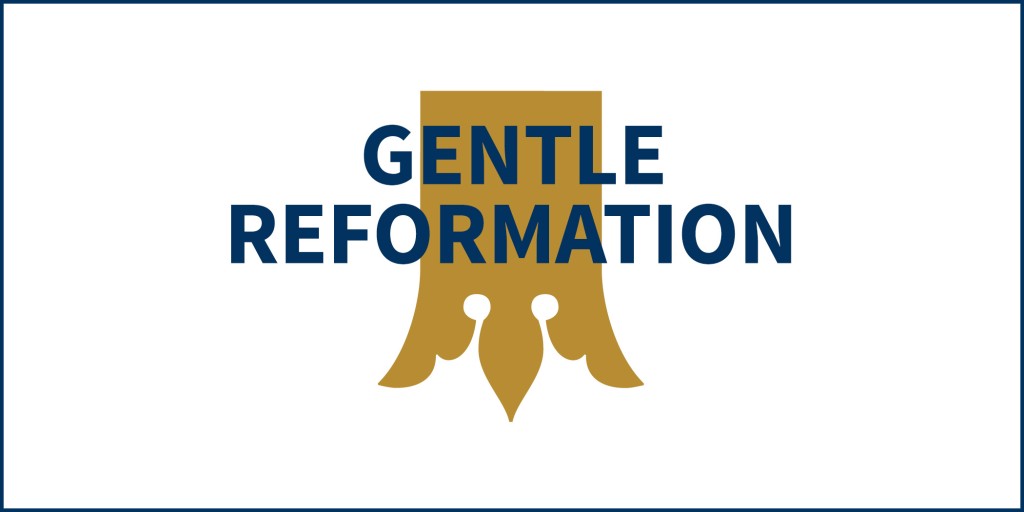You have free articles remaining this month.
Subscribe to the RP Witness for full access to new articles and the complete archives.
The minor prophets are some of the richest books of the Old Testament. They are chock-full of prophesies, conviction, and vivid illustrations, and filled to the brim with Christ. Amos, one of those minor prophets, is only nine chapters. In those pages, the Lord delves into the depths of sin, the hope of redemption, and a myriad of life applications.
A Dangerous Preacher with a Dangerous Message
Around 760 BC, a farmer named Amos walked into Samaria, the capital city of Israel. He was an outsider called to shake things up and shed new light. The Lord likes to raise up outsiders to shoot it straight. God called Amos to be that man.
The Lord had been patient and gracious with His people. Yet, they had forgotten that the Lord roars like a lion. At the blast of His breath, the mountains quake and the fields dry up. The Israelites had made themselves filthy. They had thrown off the yoke of the Lord, diving headlong into their desires. No more. The Lord would roar with power and clarity through an unlikely servant: Amos. Holding no punches, Amos declared woe and warning. He was a preacher of righteousness and judgment.
In the roar of judgment (chapters 1–2), Amos pronounces woes on various nations. As Amos preached, you can imagine the people of Samaria cheering as God rails against their enemies. Wicked Aram deserved punishment. Philistia had earned their future slavery. God was just to condemn Phoenicia. Edom should be punished for taking up the sword. Ammon and Moab heaped up their guilt for genocide and disrespect. The crowd listened with great delight to this country preacher. Even idolatrous Judah ought to be condemned. Then, cheering would turn to gnashing of teeth as Amos, in the capital city, pronounces woe against Israel. Amos is risking life and liberty.
Chapters 3–6 are the reasons for judgment. Israel’s iniquity is broad. From idolatry to opulence, the Israelites show love of self. The Lord brought them disasters to turn their stiff necks, but they were bent on sensuality and injustice. Eventually the Lord’s patience would end. Judgment would come. Wealth would disappear. Abominable worship would cease. Families would be mercilessly exiled.
Amos then records a series of vivid visions from the Lord. These visions are filled with imagery from everyday life to paint the picture of His judgments in chapters 7–9. Judgment would come in the form of swarming locusts and devastating fire.
One would be amiss to think Amos was a coldhearted, hell-fire-and-brimstone preacher. In the midst of visions of judgment, his heart breaks, and he cries out, “O Lord God, forgive, I pray! Oh, that Jacob may stand, for he is small!” (Amos 7:2). Amos is filled with grief as he sees God’s judgments coming. Far from heartless, Amos pleads for God to relent.
This is the heart of a biblical prophet. Amos preaches judgment and pleads for mercy. God will judge. The Lord will lay out the plumb line. The day of the Lord is deep darkness. No forgiveness. No mercy. No hope. Total darkness. If Amos ended at this point, it would be the most depressing book of the Bible.
Where Is Christ? Is There Any Hope?
Thank God He is faithful and remembers His covenant. The tone changes as a ray of hope bursts forth in Amos 9:11: “On that day I will raise up the tabernacle of David, which has fallen down, and repair its damages; I will raise up its ruins, and rebuild it as in the days of old.”
This passage is pregnant with messianic hope. The Lord has not forgotten His promise. He would bring about the seed of the woman to crush the head of the serpent. The Lord had not broken His promise to Abraham. God had promised David that one of his sons would be king forever. The Lord would keep His word. God would not allow His people to languish in exile. He would redeem.
It is Jesus Christ who would come and fulfill the messianic hope of Amos. But the scope of salvation is broader than Israel. As the Spirit spoke through Amos, “all the Gentiles who are called by my name” will be redeemed (Amos 9:12).
Where Does That Leave Us Today?
If we are humble, we will see a buffet of uncomfortable applications of this book. The applications lie on the surface like acorns under an oak tree. We must realize we are by nature not Amos, zealous preachers of righteousness, but we are sinful Israel. The golden bulls are in our hearts.
There’s no need to go to Bethel or Dan to find the idols of today. The idol of Western materialism surrounds us like poisonous atmosphere. Covetousness, which is idolatry, is in many ways the bedrock of our spendthrift economy. Yet the gold and ivory houses of Israel showed where their hearts were—both in private homes and government indulgence. As one pastor said, “Let me see your bank account and we’ll see where your heart is.”
We also see in Amos the desperate need for faithfulness to God and holy living. Israel was marked by idolatry and sexual immorality. The two were often intertwined. Maybe we need to take seriously the plague of pornography, sensuality, and immodesty of our culture. Our culture. Surveys show that many leaders in evangelical, even Reformed, churches are active users of pornography. Oh Lord, give us repentance!
There are plenty of other applications that can be made: justice for the poor and oppressed, the end of human trafficking, the need for self-control over gluttony, justice in war, keeping of covenants, and even the proper role of law and grace in preaching.
The book of Amos is a gift from God. It is a book of repentance and redemption. This is a book worthy of our prayerful consideration.
